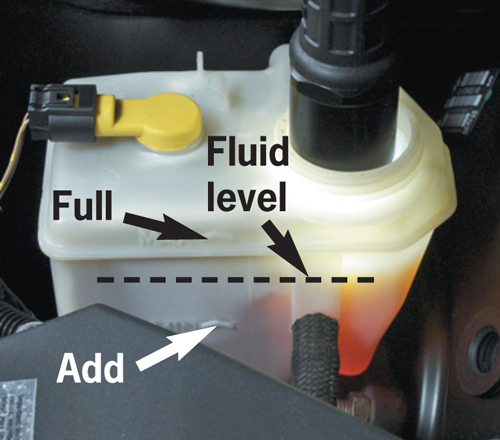
Changing brake fluid seems important but yet it's somewhat controversial.
Some car makers think it's important and include it in their maintenance schedules and others don't. We think it's important too!
Here's some major brands that are on record about changing brake fluid:
- Mercedes-Benz recommends that brake fluid should be replaced every two years or 20,000 miles and we can't and won't argue with them after all, Mercedes Benz? Would you argue?
- Chevrolets is on record saying that most of their models can go 150,000 miles or 10 years
- Subaru recommends fresh brake fluid every 30,000 miles.
- As for Volkswagen? They state brake fluid should be changed on many of its models every two years while totally ignoring what your mileage is.
- Ford, Chrysler and Toyota vehicles don't even list brake fluid as a regular maintenance item.
As always, 106 St Tire & Wheel advises you to check your owner's manual, your personal Bible on your car and what it needs and when. Always go there to read what the manufacturer recommends.
If there's nothing in your owner's manual, come talk to one of our mechanics. And frankly, if you have a lot of miles on your car or your car is old, most mechanics worth their salt will recommend a brake fluid change simply because they have seen the bad and the ugly of what might happen.
What can happen? Despite brake fluid being sealed in a system, it can absorb moisture over the years and miles. Moisture and metal? Not a good mix as it can lead to corrosion in the brake system. When moisture gets into this system the boiling temperature of brake fluid lowers leading a reduction in brake efficiency which decreases braking (NOT A GOOD THING IN NYC or anywhere else!) , and hard stops...uh-oh.
We want you to have your braking system very effective, don't you?
If your car maker lists a 10-year interval or doesn't make any recommendations for replacing your brake fluid, how often should you have it done? Okay, so let's not get crazy about this. Let's opt for prudent caution. Probably changing brake fluid every couple of years is overkill.
On the other hand, if you are a car maintenance nut like us, and, we need auto safety as a factor in a good night's sleep because we know what can happen when a 4000 lb metal object hurdles down the road at 50 mph, namely you and your car, and then cannot stop effectively, then make an appropriate decision with your mechanic.
If your vehicle's manufacturer doesn't say much, we would wait four or five years and have it done at the same time when you are replacing brake pads or rotors.
Keep in mind that replacing brake fluid is a lot more economical than replacing a master cylinder or brake lines that have corroded. You can see corrosion so if a mechanic says that its there, either trust them or take a look for yourself.
If you opt for fresh brake fluid, absolutely replace it with the type that is called for by the Bible....your vehicle's owner's manual. Remember, you can download it on the net just Google make, model and year and print!